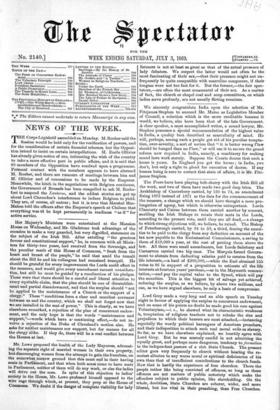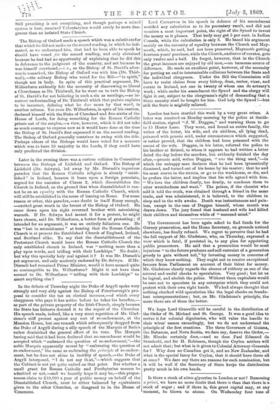LDrd Grey made a very long and an able speech
on Tuesday night in favour of applying the surplus to concurrent endowment, and on some of his points no doubt he made good his case against Voluntaryism,—i. e., he showed what its characteristic weakness is, temptation of religious teachers not to rebuke the sins and prejudices to which their hearers are most attached,—instancing especially the wordy political harangues of American preachers, and their indisposition to attack such real moral evils as slavery. So far, as we have elsewhere explained, we heartily agree with Lord Grey. But he was scarcely candid in not admitting the equally great, and perhaps more dangerous, tendency to formalism in the independent pastors of a rich State Church. The present editor goes very frequently to church without hearing the re- motest allusion to any worse moral or spiritual deficiencies of his own than that of insufficient contributions to the church funds. Now that is hardly the experience of free churches. There the people rather like being convicted of offences, so long as those offences are not matters of public notoriety which make the offenders subject to public opinion, like slaveholding. On the whole, doubtless, State Churches are soberer, wider, and more I liberal, but less vital in their preaching, than Free Churches.
Still preaching is not everything, and though perhaps a mixed system is best, unmixed Voluntaryism would surely be more dan- gerous than an isolated State Church.































